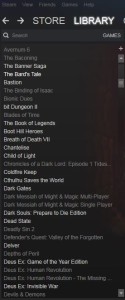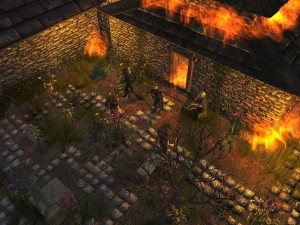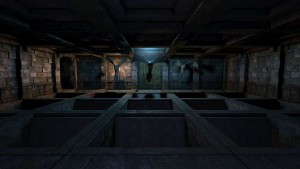Why Would Anyone Buy Another RPG?
Posted by Rampant Coyote on December 29, 2015
 With the bundles and two steam sales recently (Hey, did I mention Frayed Knights is on sale at Steam? Well, consider it mentioned again!), my game collection is threatening to get out of control again. I’m not sure when I’m going to play them all. I do try, at least. Last night I spent some time trying to organize the collection, putting a few finished titles in the “Done” category and trying to figure out into which other categories to file the unplayed ones. Thank you GOG.COM for automatically – kinda – doing that, allowing us to filter results on some level.
With the bundles and two steam sales recently (Hey, did I mention Frayed Knights is on sale at Steam? Well, consider it mentioned again!), my game collection is threatening to get out of control again. I’m not sure when I’m going to play them all. I do try, at least. Last night I spent some time trying to organize the collection, putting a few finished titles in the “Done” category and trying to figure out into which other categories to file the unplayed ones. Thank you GOG.COM for automatically – kinda – doing that, allowing us to filter results on some level.
And then I did a stupid thing. I counted the number of games labeled as RPGs in my Steam collection. Then the number of ones in my GOG.COM collection, of which more than a dozen are duplicates of games I have on Steam. And then I was reminded of why the video game industry *LOVES* the release of a brand-new console. Starting fresh with a blank slate and little competition is huge.
My immediate thought – only mostly joking with myself – was, “Okay, I don’t need to buy another RPG for the rest of my life.” The CRPG Addict has a pretty reasonable six-hour minimum for giving a game a fair shake, and he’s only a little over 200 games in over the course of six years, and he has turned the whole thing into a spare-time devouring quest.
As an RPG developer, that comes with a second thought: Why would anyone buy another RPG? Especially mine. This is a really, really important question. A developer cannot ignore how glutted the market is. This isn’t something I regret. I was a cheerleader and evangelist for this happening. But it comes with problems.
 Nowadays, I can’t really complain about a lack of new RPGs coming out. Or even a lack of games made “the way they used to make them.” No, not with so many indie and “big indie” titles filling that “old-school RPG” niche. I used to sing the praises of the late 80s / early 90s with so many awesome (and… ahem, not-so-awesome) RPGs getting released each year. We dwarf that easily nowadays.
Nowadays, I can’t really complain about a lack of new RPGs coming out. Or even a lack of games made “the way they used to make them.” No, not with so many indie and “big indie” titles filling that “old-school RPG” niche. I used to sing the praises of the late 80s / early 90s with so many awesome (and… ahem, not-so-awesome) RPGs getting released each year. We dwarf that easily nowadays.
But as many predict with the “indiepocalypse”, these periods of glut lead to an inevitable collapse as supply greatly exceeds demand, and the makers can no longer afford to keep making their games. The end result is a shake-out, and only those with the (relatively) deep pockets can stay in business. But in the indie world, “Deep Pockets” means something pretty different from what it used to. A heavily committed hobbyist with a day-job to finance his game development activities (*cough* *cough*) can stick around through the lean times in a way that only the biggest publishers could back in the old day. They don’t need to depend on a well-heeled white knight to buy them up and save them. They don’t need to spend tons of money up-front or tons on marketing to stay relevant.
I think a fair-sized fraction of the games coming out right now are from just those kinds of developers. And then we have several successful studios that continue to be successful, if they can stay lean & mean. And of course, the big studios and publishers will keep doing their thing. So I don’t think the coming relative dearth of role-playing games is going to be all that noticeable. New developers will keep jumping into the fray. And role-playing games seem to be a pretty evergreen genre.
 What I expect to see and hope to see will be more experimentation. I’m extremely happy that we’ve managed to go back and meet the pent-up need for the kind of “old-school” fun that was missing from the AAA releases a decade ago. My frustration back then wasn’t that we “evolved” so much as we picked one lowest-common-denominator branch and rode it all the way into the ground. Am I mixing metaphors enough? How about “milked it dry?” Anyway, since then we’ve gone back and rediscovered some classic ideas, systems, and styles. This is wonderful. I hope we never again forget our roots.
What I expect to see and hope to see will be more experimentation. I’m extremely happy that we’ve managed to go back and meet the pent-up need for the kind of “old-school” fun that was missing from the AAA releases a decade ago. My frustration back then wasn’t that we “evolved” so much as we picked one lowest-common-denominator branch and rode it all the way into the ground. Am I mixing metaphors enough? How about “milked it dry?” Anyway, since then we’ve gone back and rediscovered some classic ideas, systems, and styles. This is wonderful. I hope we never again forget our roots.
Purists may balk, but I think what needs to happen (and what is happening) is that we need to continue to innovate and explore from there. This isn’t going to always lead to success. That’s kind of the point of experimentation. The reason we got stuck in the rut we were in a decade ago. Sure, I hope we keep getting some games that stick with tradition and keep refining the experience with intriguing new stories and fascinating worlds and clever system variants. The existing frameworks are flexible enough to handle a lifetime of new, fresh-feeling content. But we also need to keep exploring the potential of what an RPG can be.
And as gamers, we need to keep an open mind, and be willing to take a chance on those games that might not strictly conform to our existing preferences or vision of what a CRPG should be. We’re RPG fans, so exploration should be second nature. Again, not every foray will be a successful one, and we may clear some titles off our pending list without ever getting close to completion. But as games are cheaper than ever nowadays, I don’t see that being a major setback, and there is treasure aplenty waiting to be found along less-traveled paths.
Filed Under: Biz, Indie Evangelism - Comments: Read the First Comment
Maklak said,
In the olden days, when I got a game, I would at least give it a try and learn it, even if it wasn’t appealing at first, or wasn’t my gerne. I had 120 GB hard drive, some diskettes and not that many games after all. Now I just take a look at a let’s play and go “meh” on something I would play as a kid. I got spoiled by choice and lack of time.